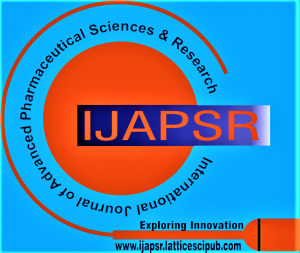![]()
Treatment Analysis for Alzheimer’s Disease using Caenorhabditis Elegans as a Model
Ramin Sarkar
Ramin Sarkar, Gwinnett School of Mathematics, Science and Technology, Lawrenceville (Georgia), United States.
Manuscript received on 01 June 2024 | Revised Manuscript received on 10 June 2024 | Manuscript Accepted on 15 June 2024 | Manuscript published on 30 June 2024 | PP: 29-34 | Volume-4 Issue-4, June 2024 | Retrieval Number: 100.1/ijapsr.A405705011224 | DOI: 10.54105/ijapsr.A4057.04040624
Open Access | Editorial and Publishing Policies | Cite | Zenodo | OJS | Indexing and Abstracting
© The Authors. Published by Lattice Science Publication (LSP). This is an open-access article under the CC-BY-NC-ND license (http://creativecommons.org/licenses/by-nc-nd/4.0/)
Abstract: Alzheimer’s Disease, a progressive neurodegenerative condition lacking a definitive and guaranteed treatment, prompts critical investigation for effective remedies to manage its behavioral and cognitive impact. Herbal extracts like Ginkgo Biloba, Lion’s Mane, Basil, and Sage present potential options to alleviate plaque build-up caused by Alzheimer’s. This study aims to identify the most efficacious herbal extract for treating Alzheimer’s, using aged Caenorhabditis elegans (C. elegans) as a model organism. The hypothesis states that treated C. elegans will exhibit increased behavioral movement and altered molecular effects compared to the untreated C. elegans. The Independent Variable consists of the various extracts fed to the C. elegans. The Dependent Variables consist of the C. elegan’s behavioral abilities (speed, responsiveness, foraging) and C. elegan’s molecular effects measured by protein concentration. The Control Variable is the untreated aged C. elegan’s behavioral movement and molecular effects. Data was collected using WormLab and molecular assays to validate and determine the treatment’s effectiveness. Through ANOVA testing, statistically significant differences emerged in four out of five measured tests, rejecting the null hypothesis more often than accepting it. Results from data indicate Ginkgo Biloba extract as the best extract, due to displaying increased speed, responsiveness, and foraging ability in C. elegans compared to other extracts and untreated C. elegans. This suggests Ginkgo Biloba as a highly possible treatment option.
Keywords: Alzheimer’s Disease, Caenorhabditis Elegans, Ginkgo Biloba, Herbal Extracts.
Scope of the Article: Biological Sciences
